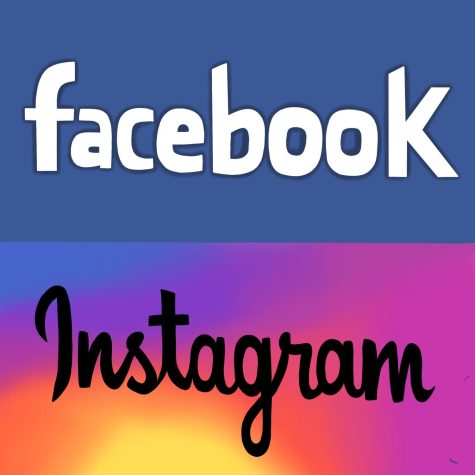Facebook on fire
Students wrestle with the integrity and necessity of Facebook products
October 22, 2021

After hitting snooze one last time, social media is often next on the morning checklist, but on Oct. 4, at 8:39a.m., Facebook and its associated programs shut down for nearly six hours. This outage was the company’s longest since 2008. Just a day later, the Facebook whistleblower, Frances Haugen, would testify before Congress to denounce Facebook’s lack of transparency regarding the ethical concerns of their products.
Both events question the necessity and safety of Facebook. For students at Seattle Pacific University, the events required them to reflect on the communication and content services provided by the social media giant.
Freshman clinical psychology major Bell Nirk first noticed the outage when trying to contact a support group she manages through Instagram direct messages.
“When I first woke up, I checked the group chat and saw that it was down,” said Nirk. “I went to Twitter and Tiktok to see if it was not just me and saw that everyone was making memes about Instagram not working.”
The outage was caused by a maintenance test that accidentally disconnected all of Facebook’s data centers. It is not often that the 1.2 trillion-dollar corporation has a global blackout, and many people were unprepared for the communicative fallout.
Brenda Ramirez Sanchez, a junior studying business administration, lost contact with her relatives during the outage through WhatsApp, a messaging service popular around the globe.
“I went on WhatsApp to text some family and that’s when I noticed it was down,” said Ramirez Sanchez. “It was very inconvenient because I have family in Mexico and it’s really expensive to call.”
Facebook dominates the American social networking market, but as a product that relies on active use, it takes away time people could be spending elsewhere. The outage provided an opportunity for students to assess their attachment to the platform.
Micah Witherow, a sophomore global development major, believed that Monday’s outage exhibited an over-dependence on Facebook.
“We can be very dependent on [Facebook], so our problem-solving skills in terms of communication are very different now and in some cases even lacking,” said Witherow. “We need to diversify our communication methods instead of having one monopolized source… and when something like this happens, we need to be equipped to deal with it.”
The critique, however, extends past practical means of communication. Another one of Facebook’s services is content, content that has recently come under fire by Frances Haugen, the Facebook whistleblower.
The internal research released by Haugen reveals that Facebook is aware of the algorithms that incite anger to generate content interactions for profit. Research also shows that Instagram is particularly damaging for teenage girls, more so than other social media platforms.
Ramirez Sanchez recognizes content and practices that are harmful to self-esteem, specifically on one particular Facebook-owned app.
“On social media, especially Instagram, people filter themselves a lot and will show a false reality,” said Ramirez Sanchez. “People like younger girls will compare themselves to that image and think that that’s what they need to do in real life.”
Witherow understands that Facebook is a business that functions within a market economy, forcing them to cut ethical corners.
“Emotions are profitable and if you can get strong emotions, you can get customers for life,” said Witherow. “The fact is, [Facebook] values what you put your time into, so what you put your time into will influence how and what you see.”
Essentially, patrons pay for Facebook with their time, but their sovereign choices determine what they get out of it.
Nirk argues that people are responsible for their own time management. She believes that an unhealthy relationship with social media is dependent on personal choices such as the timing of social media use.
“I think so many people spend the end of their day looking at other people’s lives, and I don’t think that’s healthy,” said Nirk. “You’re gonna go to bed to enter REM sleep after just having spent the last hour reflecting on other people’s lives.”
The Facebook outage and the Facebook whistleblower are two sides of a double-edged sword. While students temporarily lost a necessary mode of communication, it also forced them to consider the integrity of the platform. Facebook is not going anywhere anytime soon, but users are responsible for the safety of their technology.
“I’m hoping there can be some more internalized safeguards going forward because if you’re only fed a certain amount of information, you’re only going to think a certain way. I think that’s a very dangerous place to be in the world,” said Witherow.

























































































